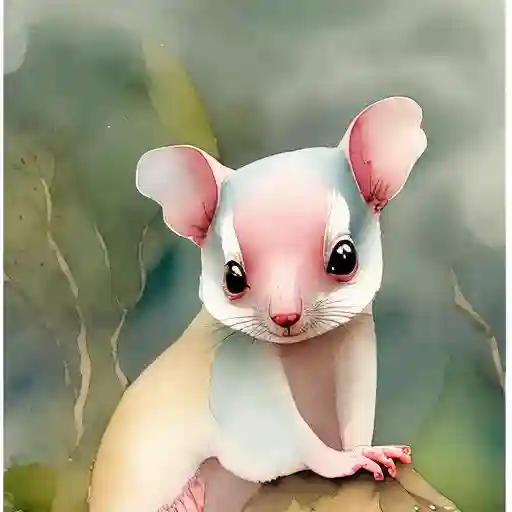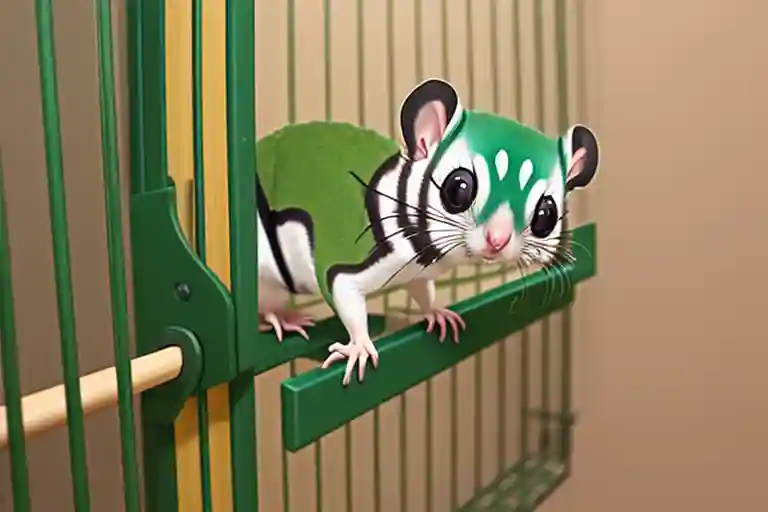Sugar gliders are captivating and adorable marsupials that have captured the hearts of pet lovers worldwide. These small, nocturnal creatures are renowned for their gliding abilities and endearing personalities. However, one question that often arises among enthusiasts and potential sugar glider owners is: Are sugar gliders carnivores? In this comprehensive article, we will delve into the diet of sugar gliders, exploring their natural feeding habits, nutritional needs, and the considerations involved in caring for these charming marsupials.
The Natural Diet of Sugar Gliders
Sugar gliders are omnivores by nature, meaning their diet consists of a diverse range of foods. In the wild, these adorable marsupials primarily feed on a combination of insects, fruits, nectar, tree sap, and even small vertebrates. Their ability to glide from tree to tree allows them to access various food sources in their natural habitat.
Omnivores or Carnivores: Understanding Their Classification
While sugar gliders do consume insects and other animal matter as part of their diet, it’s important to note that they are not strict carnivores. Their omnivorous nature is crucial for obtaining the nutrients they need for a healthy life.
An In-depth Look at Sugar Glider Nutrition
The nutritional needs of sugar gliders are quite unique, and it’s essential to understand the specific requirements to ensure their well-being. A balanced diet for sugar gliders includes protein, carbohydrates, vitamins, and minerals. Providing a varied and nutritionally rich diet is key to their overall health.
The Role of Insects in a Sugar Glider’s Diet
Insects are a valuable source of protein for sugar gliders. In the wild, they consume insects such as crickets, mealworms, and small spiders, which offer essential nutrients required for muscle growth, energy, and overall vitality.
The Importance of Fruits in Their Nutrition
Fruits play a significant role in the diet of sugar gliders. They provide essential vitamins, antioxidants, and natural sugars that contribute to their energy levels. However, not all fruits are suitable for these marsupials, and it’s crucial to know which ones to include in their diet.
The Debate: Can Sugar Gliders Thrive on a Vegetarian Diet?
While sugar gliders are omnivores, there is an ongoing debate within the sugar glider community regarding vegetarian diets. Some advocates believe that a vegetarian diet can be healthy, while others argue that it may not provide all the necessary nutrients. We’ll explore both sides of this debate.
The Need for Variety in a Sugar Glider’s Diet
Variety is the key to a balanced sugar glider diet. Offering a diverse selection of foods helps mimic their natural feeding habits and ensures they receive a wide range of nutrients necessary for optimal health.
Feeding Sugar Gliders: Dos and Don’ts
When it comes to feeding sugar gliders, there are essential guidelines to follow. Understanding what to include and what to avoid in their diet is crucial for their well-being.
Dietary Considerations for Captive Sugar Gliders
Captive sugar gliders have specific dietary requirements that differ from their wild counterparts. We’ll explore the unique considerations involved in providing a proper diet for sugar gliders kept as pets.
Hydration: Water Requirements for Sugar Gliders
While sugar gliders obtain moisture from their diet, providing access to clean, fresh water is still essential. We’ll discuss the water needs of sugar gliders and how to ensure they stay hydrated.
Can You Feed Sugar Gliders Human Food?
Many sugar glider owners wonder if they can share some of their meals with their furry friends. We’ll delve into which human foods are safe for sugar gliders and which ones to avoid.
The Impact of Diet on Sugar Glider Health
A proper diet has a direct impact on the health and well-being of sugar gliders. We’ll explore how an inadequate diet can lead to various health issues and the importance of making informed dietary choices.
How to Transition a Sugar Glider to a New Diet
Transitioning a sugar glider to a new diet requires patience and careful planning. We’ll provide step-by-step guidance on how to make the transition as smooth as possible.
How Often Should You Feed Your Sugar Glider?
Establishing a feeding schedule is essential for maintaining the health of your sugar glider. We’ll discuss how often you should feed them and the portion sizes to ensure they receive the right amount of nutrition.
Feeding Challenges and Solutions
Feeding sugar gliders can present some challenges, especially for new owners. We’ll address common issues that arise during feeding and provide practical solutions.
Best Practices for Providing a Balanced Diet
We’ll share the best practices for offering a balanced and nutritious diet to your sugar glider, helping them thrive and lead a happy, healthy life.
Supplements: Are They Necessary for Sugar Gliders?
Supplements can be beneficial for sugar gliders, but it’s essential to use them appropriately. We’ll discuss when and how to use supplements to complement their diet.
Popular Commercial Diets for Sugar Gliders
Several commercial diets are formulated specifically for sugar gliders. We’ll review some popular options, highlighting their pros and cons.
Homemade Diets: Pros and Cons
Some sugar glider owners prefer to create homemade diets. We’ll explore the advantages and disadvantages of preparing your sugar glider’s food at home.
The Connection Between Diet and Behavior
Diet plays a significant role in shaping a sugar glider’s behavior. We
‘ll discuss how certain foods can impact their mood, activity levels, and social interactions.
Dental Health and Diet: A Correlation
Dental health is crucial for sugar gliders, and their diet plays a role in maintaining strong teeth. We’ll explore the relationship between diet and dental well-being.
Feeding During Breeding Seasons
During breeding seasons, sugar gliders may have specific dietary needs. We’ll discuss how to adjust their diet to support the breeding process.
FAQs
Can Sugar Gliders Eat Meat?
Yes, sugar gliders can eat small amounts of lean meat as part of their diet. Insects, such as crickets and mealworms, are a natural source of protein for them.
Do Sugar Gliders Need Insects in Their Diet?
Yes, insects are essential for sugar gliders. They provide valuable protein and other nutrients that contribute to their overall health.
Can Sugar Gliders Eat Grains?
While sugar gliders are not strict herbivores, grains are not a significant part of their natural diet. It’s best to focus on foods that align with their omnivorous nature.
What Fruits Are Safe for Sugar Gliders?
Some safe fruits for sugar gliders include apples, blueberries, grapes, and papaya. Always remove seeds and pits, as they can be harmful.
Should I Feed My Sugar Glider Nuts?
Nuts are a good source of healthy fats and proteins for sugar gliders. However, they should be offered in moderation due to their high fat content.
Can Sugar Gliders Eat Dairy Products?
No, sugar gliders are lactose intolerant and should not be given dairy products. Stick to their natural diet for optimal health.
Conclusion
Understanding the dietary needs of sugar gliders is essential for providing them with a long, healthy, and happy life. While they are not strict carnivores, their diet should include a balance of protein, fruits, and other essential nutrients. By following best practices and considering the unique nutritional requirements of sugar gliders, you can ensure that these charming marsupials thrive as pets and continue to bring joy to their owners.

